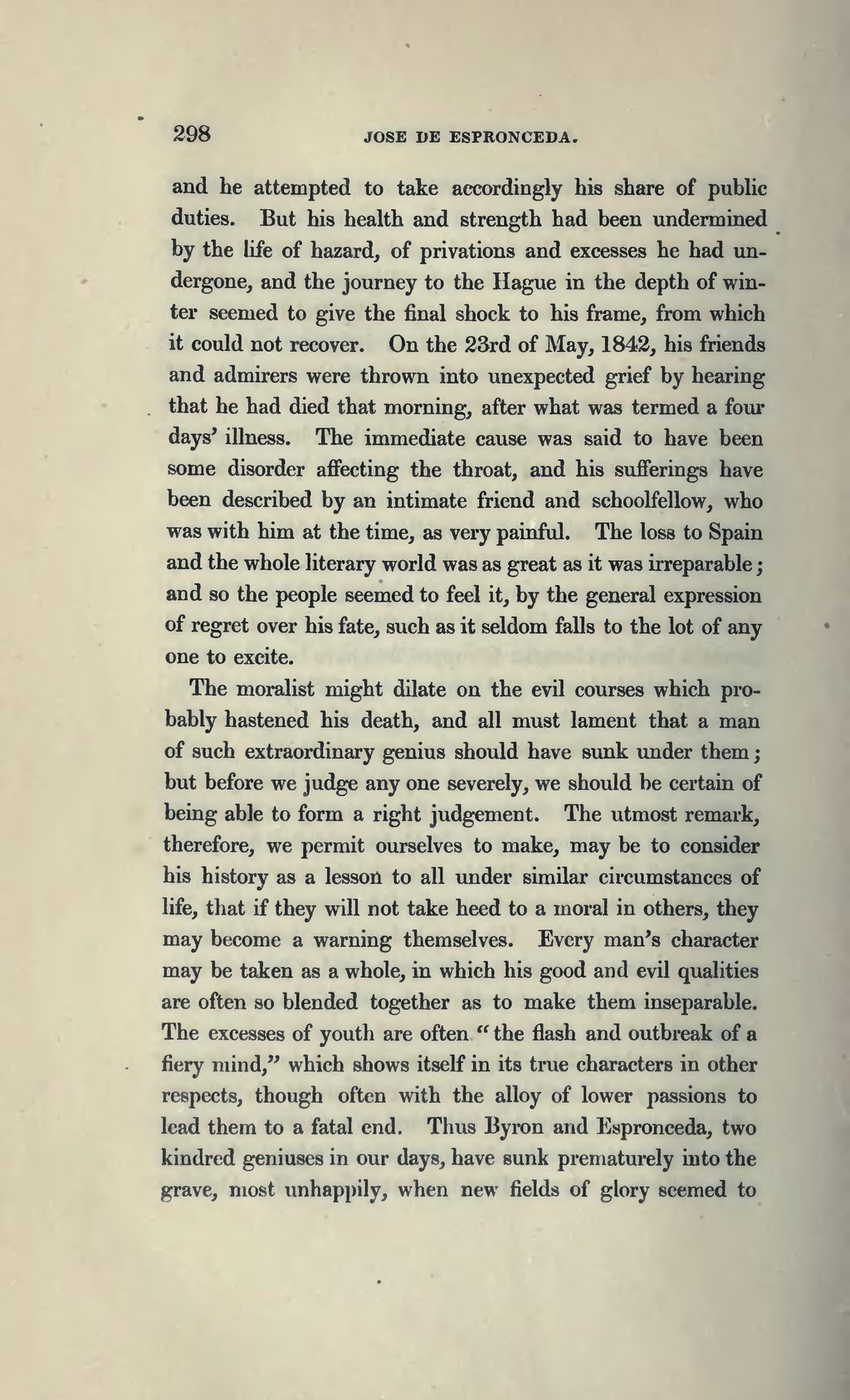and he attempted to take accordingly his share of public
duties. But his health and strength had been undermined
by the life of hazard, of privations and excesses he had undergone, and the journey to the Hague in the depth of winter seemed to give the final shock to his frame, from which it could not recover. On the 23rd of May, 1842, his friends and admirers were thrown into unexpected grief by hearing that he had died that morning, after what was termed a four days' illness. The immediate cause was said to have been some disorder affecting the throat, and his sufferings have been described by an intimate friend and schoolfellow, who was with him at the time, as very painful. The loss to Spain and the whole literary world was as great as it was irreparable; and so the people seemed to feel it, by the general expression of regret over his fate, such as it seldom falls to the lot of any one to excite.
The moralist might dilate on the evil courses which pro- bably hastened his death, and all must lament that a man of such extraordinary genius should have sunk under them; but before we judge any one severely, we should be certain of being able to form a right judgement. The utmost remark, therefore, we permit ourselves to make, may be to consider his history as a lesson to all under similar circumstances of life, that if they will not take heed to a moral in others, they may become a warning themselves. Every man's character may be taken as a whole, in which his good and evil qualities are often so blended together as to make them inseparable. The excesses of youth are often "the flash and outbreak of a fiery mind," which shows itself in its true characters in other respects, though often with the alloy of lower passions to lead them to a fatal end. Thus Byron and Espronceda, two kindred geniuses in our days, have sunk prematurely into the grave, most unhappily, when new fields of glory seemed to
